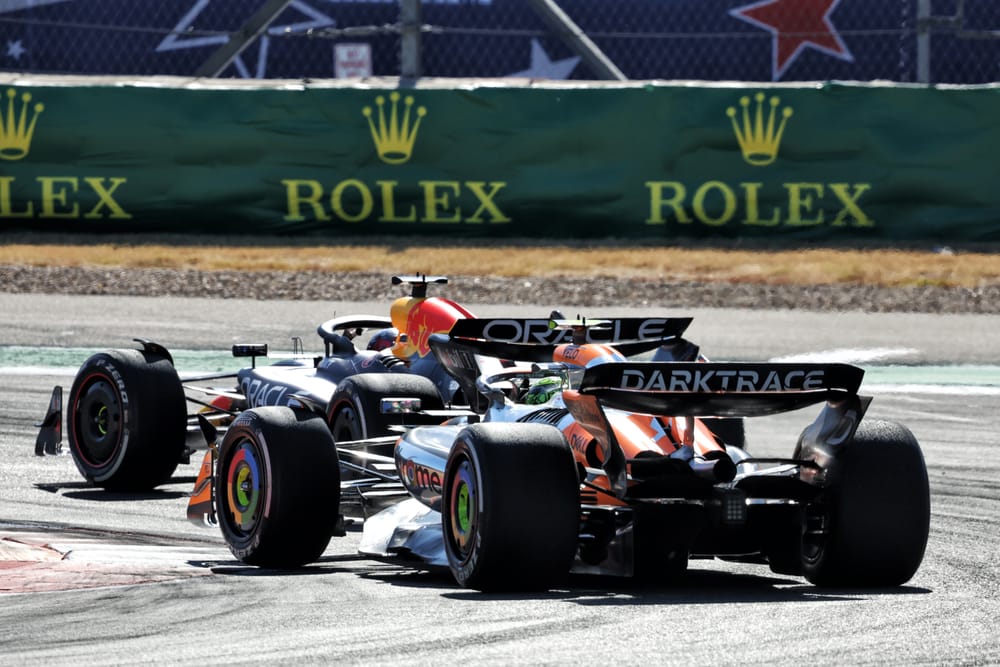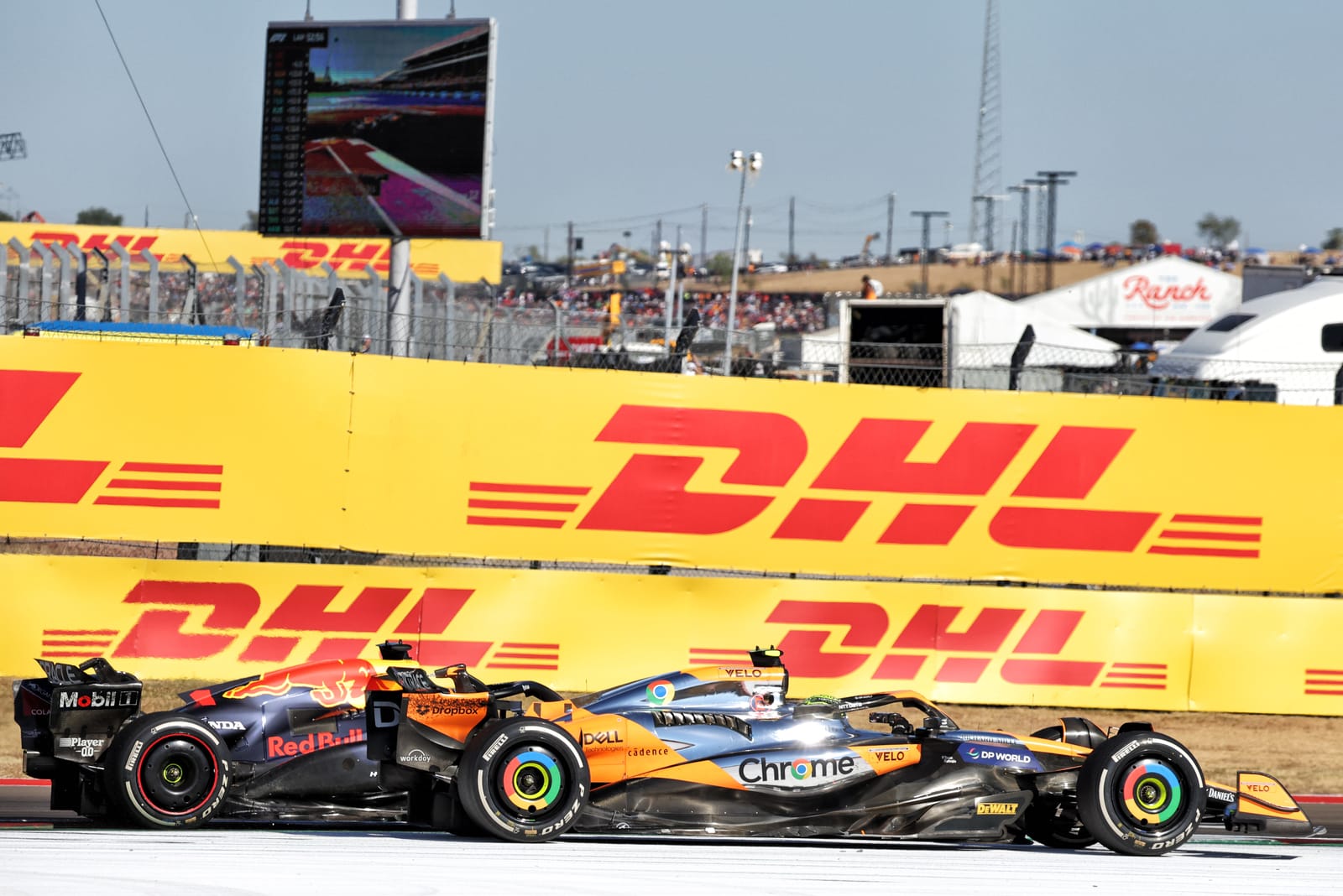Up Next

McLaren’s failed petition for review of Lando Norris’s United States Grand Prix penalty highlighted a fundamental compromise in the way Formula 1 races are ‘refereed’ that can never be fully reconciled.
It’s a philosophical question, but one that has no perfect answer should you want to satisfy every possible criteria of perfect stewarding.
McLaren sought a means to reopen the penalty decision so that it could argue Norris had switched role from attacking driver to defending driver by inching ahead of Max Verstappen. Setting aside the rights and wrongs of that petition, it highlights a problem with the process: McLaren, both as a team and, in the form of Norris, as a driver, wasn’t in the room to argue its case.
The logical resolution is that decisions should only be made after the race when every possible representation can be made. However, the many occasions when results have changed long after the race have led to much hand-wringing and criticism of how that makes F1 look to the watching world. Fans want to know the result at the flag, goes the argument.
It's impossible to reconcile the desire for quick decisions made within the scope of the race – such as the one that gave Norris a five-second penalty and ensured that everyone knew as they crossed the line that the positions would be swapped – and even more rigorous scrutiny of the cases. Either those watching know the outcome at the flag, or you run the risk of positions being swapped later on. A compromise is essential.
Currently, F1 leans towards rapid decisions for at-the-flag clarity. Look back to past examples when stewards’ deliberations have been dragged out and the results changed hours after the race and there’s invariably a groundswell of support for preventing this in the future. The sporting regulations stipulate that the available time penalties – five seconds, 10 seconds, a drive-through and a stop-and-go – cannot be appealed.
With that in mind, the logical conclusion is not to issue quick verdicts. But that would lead to the stewards’ room being a busy place in the hours after most if not all races. In-race penalties also then become close to impossible. This eliminates any hope of quick restorative justice to prevent illegal actions from conferring an advantage. F1 could go in that direction, but it would have consequences.
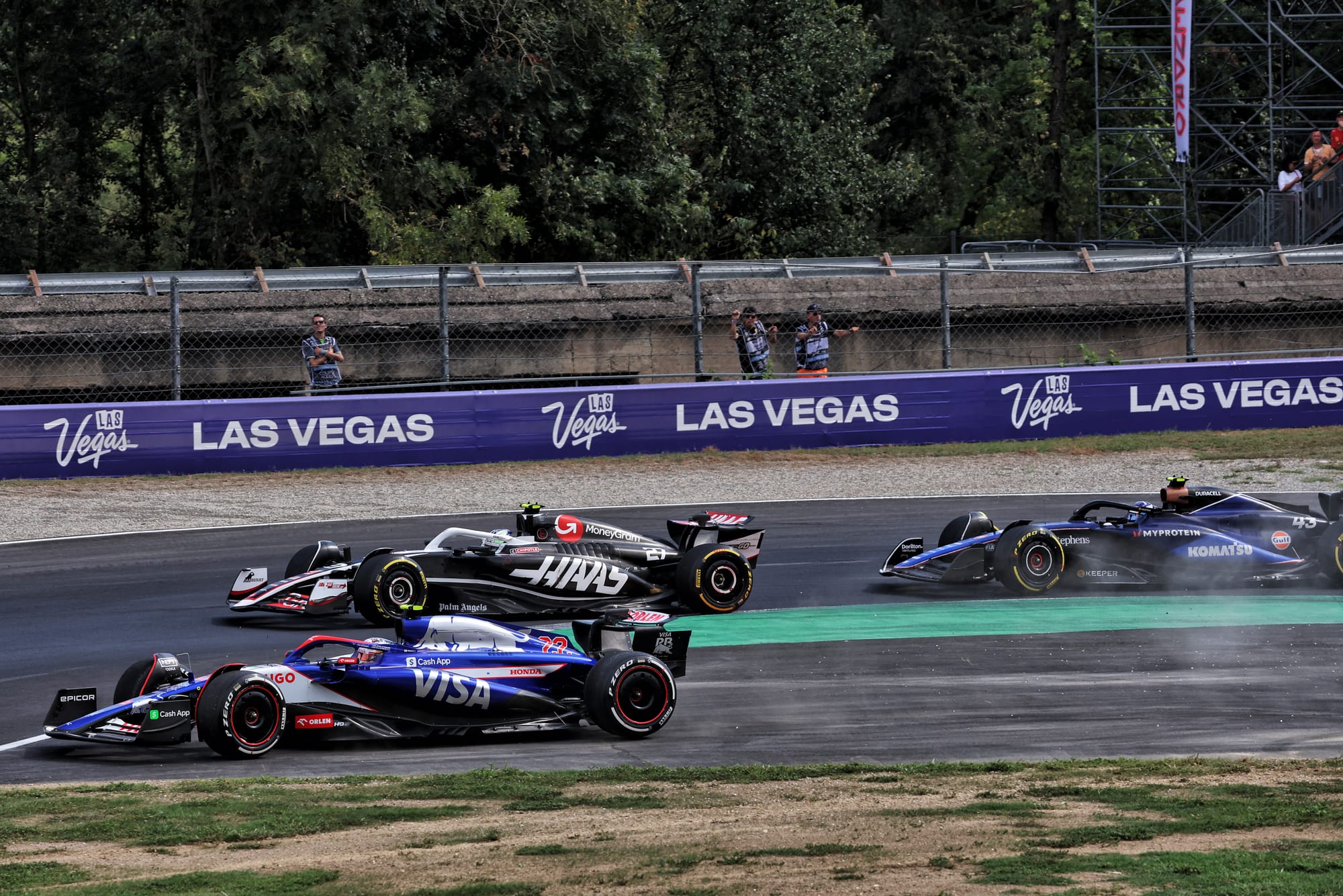
You cannot have it both ways, seeking to do so results in the endless circle of demands for fast decisions, then concerns that they might have been rushed when they are expedited.
You take your choice, and F1 as a global sport with a huge audience will always tend towards the instant answer because it's good for the show. That's a strong argument given sporting contests by their very nature take place within a narrow time window - although that argument should never be extended to allowing a car proven to be illegal to hang onto a win (something that has in the past happened explicitly in other categories when other penalties just as fines have been applied but the actual results were allowed to stand).
There is a twist in this debate. In rejecting McLaren’s petition for review, the stewards included a note directed at the “regulatory authority” that effectively questioned whether there needed to be a change to allow some decisions to be revisited without necessarily satisfying the requirement for new and relevant evidence to be provided.
Point 23 of the verdict mentioned “the current ‘high bar’ that exists in Article 14 [permitting a petition for right of review] and the fact that it appears to have been designed more for decisions that are taken as a result of a hearing where all parties are present, rather than in the pressurised environment of a race session, when decisions are taken, (as is allowed under the International Sporting Code), without all parties being present”.
So what could that lead to? You could open up all penalties to appeal and therefore allow evidence to be heard, but that would lead to most penalties being subject to that process and the majority of cases being deferred. That would be unsatisfactory.
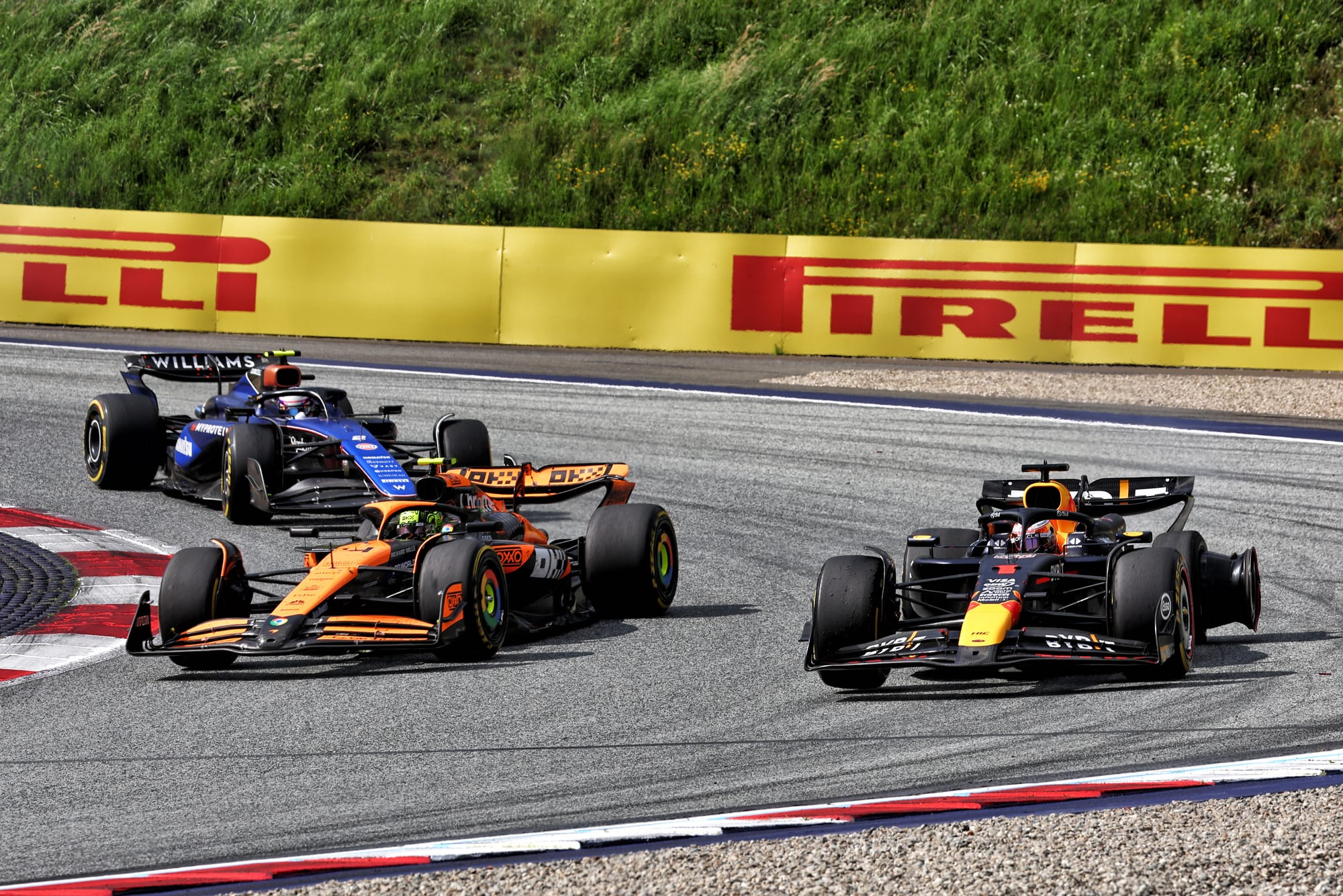
There might be some mechanism that could permit a review based on some other criteria, perhaps the submission of a compelling case that a decision was wrong in cases where all parties are not present during the 'trial'.
That might be a needle that can be threaded with a modification to the review regulations, but creating the opportunity for more in-race penalties to be rescinded creates other problems.
The McLaren example could be easily rectified because it related to an overtaking manoeuvre that happened on lap 52 of 56 and only impacted the positions of two drivers, but most penalties couldn’t be so elegantly reversed.
There is no easy answer to this, no system that ticks every single possible box. Arguments that it can be resolved easily to everyone’s satisfaction should be treated with suspicion as easy answers rarely fit in with the multi-faceted messiness of reality.
An opportunity exists to find a way to fettle the regulations to ensure what some sports refer to as 'egregious errors’ can be corrected. McLaren, of course, would argue what happened at Austin was such a mistake and the stewards would dispute that. But if consideration is given to modifying the right of review there must be a clear philosophical underpinning of exactly what F1 wants to achieve.
We all want justice that is both instant and robust in terms of the decision-making and consideration of evidence. This creates an impossible balancing act for sporting regulators to perform. Therefore any changes must recognise there's no perfect answer to this, only the best possible compromise that serves sporting integrity. And the impact on the quality of the sporting product is an important part of this equation, as the effect of VAR in football proves.
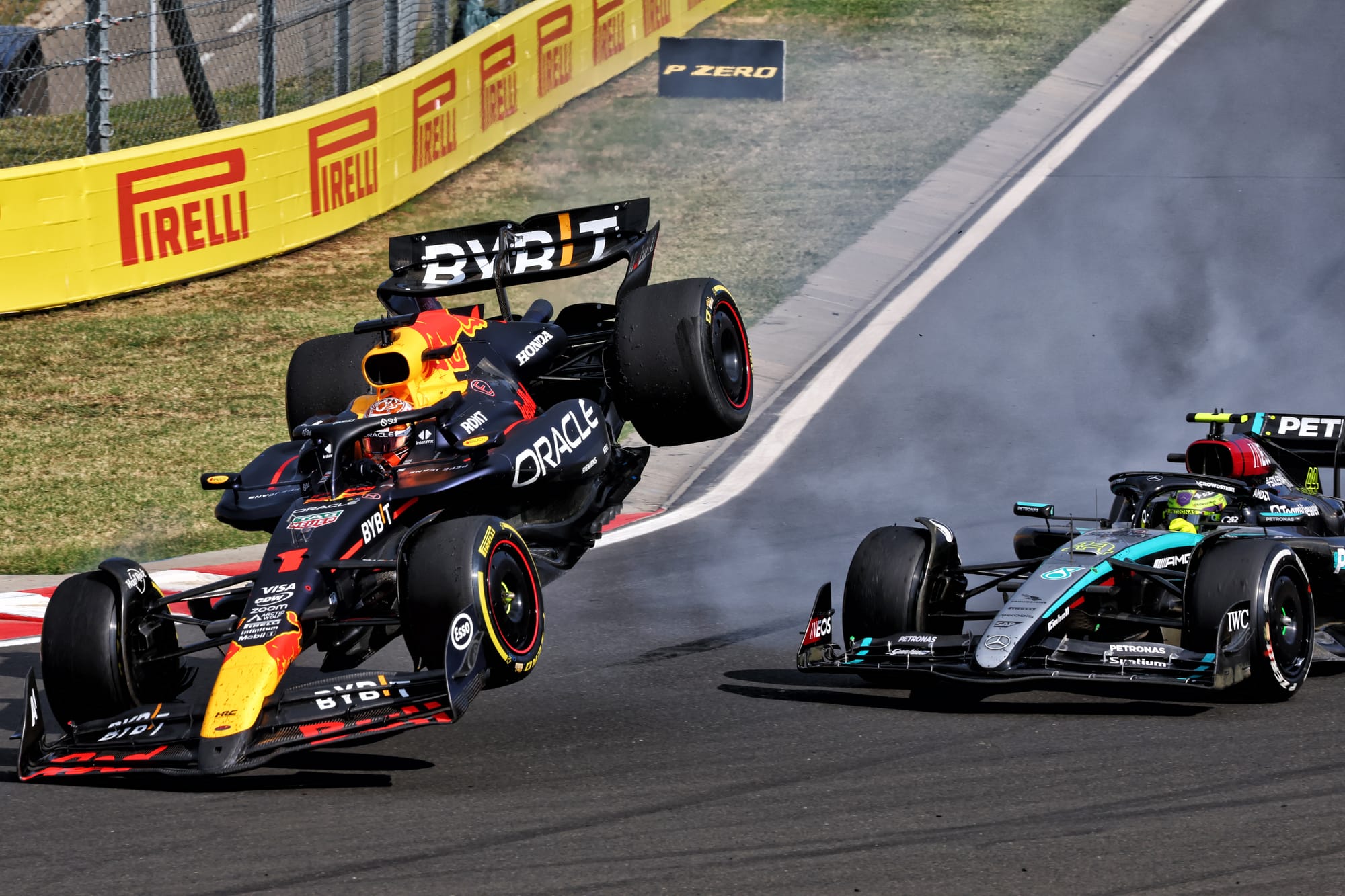
If the need for quick resolutions - which teams themselves have at times called for - is paramount then everyone must accept that sometimes they won’t get the outcomes they want.
If maximising the consideration of evidence and creating every opportunity for hearing competitor testimony and therefore making the stewarding process even more rigorous, and therefore lengthy, then the consequences of that must also be accepted.


